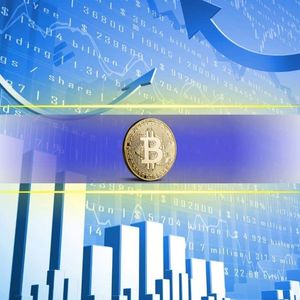Opinion by: Chris Jenkins, adviser to Pocket Network Tim Berners-Lee’s vision of the World Wide Web is dead. Instead of an open and accessible global information system, the web is controlled by centralized global data conglomerates, which don’t just restrict free speech but also monetize your data as a price of entry. Web2 firms have built walled gardens with massive information asymmetry between companies and users. Blockchain-based decentralized tech challenges the status quo, offering an alternative to Web2’s closed-source infrastructure. It enables developers and engineers to build a censorship-resistant and accessible open-data web to champion the cause of free speech. Open-source technology creates a paradigmatic shift in a fair and inclusive internet where centralized web companies won’t dictate the terms. A vision deferred In 1989, Berners-Lee’s invention created a virtual space for collaboration, sharing and learning from one another. The web’s first iteration was based on openness, where anyone could contribute, access information, work together, and enjoy the same opportunities. The internet is no longer free in 2025. Capital’s brute force has emboldened centralized companies to exercise authoritarian control over data and information flows. Unfortunately, these companies have acquired their power and resources from unaware users who unknowingly contributed to their capital accumulation strategies. Web2 companies surreptitiously collect data from users without fair compensation and use that as a weapon to control user behavior. Corporations harness user data to train opaque algorithms and deploy information “discoverability” to shape users’ beliefs and emotions. This practice is visible mainly on centralized social media platforms such as Facebook, Instagram and X, with multiple scandals and pending litigations eroding user trust. For example, in June 2024, Meta, the parent company of Facebook and Instagram, received 11 complaints from European Union members . The complaints concerned using personal data like posts and images to train Meta’s AI models without consent, violating EU privacy laws. Recent: The case against Pavel Durov and why it’s important for crypto The Cambridge Analytica scandal demonstrated how companies mine data to shape political perspectives and election outcomes. These companies also construct pre-determined narratives and shape market behavior by promoting or subverting curated reports, sometimes shaping public perspectives on health and economic data. Under its Digital Markets Act, the European Commission has initiated a noncompliance investigation into Apple, Meta, Amazon and Alphabet’s practices . Meta has also incurred a $1.3 billion fine for failing to comply with privacy regulations. In this environment, “free speech” remains a far-fetched dream because the entire tech stack is hostile to accessibility and openness. To realize Berners-Lee’s vision, apps must use a decentralized tech stack and be built from the ground up on an open architecture. Make the internet free (again) An app’s tech stack consists of its front and back ends, data storage and Content Delivery Network (CDN). Web2 platforms depend on a centralized tech stack that puts free speech at risk, while most blockchain-powered apps leverage a censorship-resistant decentralized tech stack with high uptime. Some decentralized applications (DApps) build their front end on a decentralized interface. Most of their back end, however, is still stuck on centralized data infrastructure . For example, despite their censorship vulnerabilities and single failure points, decentralized applications (DApps) often use centralized cloud providers and data hosting platforms . These types of attack vectors make projects like Tornado Cash subject to the changing moods of state actors. Shifting to open-source protocols for distributed data storage like InterPlanetary File System (IPFS) and Filecoin upholds the free speech philosophy on DApps. These protocols offer a censorship-resistant, tamper-proof storage facility that remains accessible without arbitrary outages. DApps also use centralized remote procedure call (RPC) providers to supply data from the back-end to the front-end interface, especially across multiple networks. But any outage or attack, like the one on X , can lead to downtime, inaccuracies, data gaps and disconnected information flows. If it doesn’t seem like much, remember downtime or inaccuracies in decentralized finance can cost billions. Decentralized protocols avoid these situations by transforming data accessibility and transfer channels with independent node operators. Data queries are distributed across the network, eliminating any single point of failure and providing uninterrupted data availability. More importantly, it safeguards free speech rights because no single node can block or obstruct data flow, and the network remains accessible even if several nodes go offline. CDNs, yet another crucial component for serving user requests, can become inaccessible due to market pressure or political influence. Opaque decisions from closed-door meetings dictate data flows on CDNs without any certainty in information flows. Start with the basics Decentralized protocols remove the need for centralized decision-making by enabling apps to directly access data without intermediaries. These permissionless protocols connect open-source data and service providers with users and applications, removing human interaction and associated manufactured problems. Blockchain-powered platforms lay the foundation for a decentralized tech stack that promotes free speech and isn’t controlled by centralized Web2 companies. These permissionless protocols build an open-source world and return the internet to Berners-Lee’s vision of a global and accessible network. Opinion by: Chris Jenkins, adviser to Pocket Network. This article is for general information purposes and is not intended to be and should not be taken as legal or investment advice. The views, thoughts, and opinions expressed here are the author’s alone and do not necessarily reflect or represent the views and opinions of Cointelegraph.


















